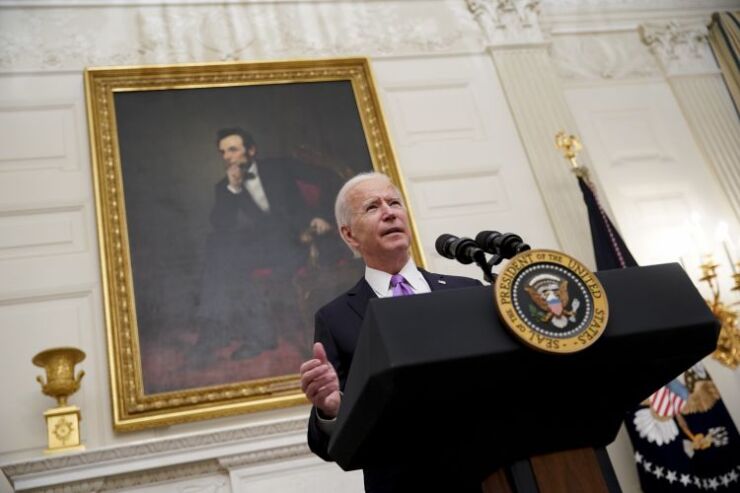Cracking down on so-called junk fees is turning out to be good politics.
President Biden admonished banks and specifically mentioned bank 'junk fees' in remarks Monday
Biden used the term junk fees in a nod to Consumer Financial Protection Bureau Director Rohit Chopra, who
"What we're talking about today is something that's weighing down family budgets: unnecessary hidden fees — unnecessary hidden fees, known in the parlance as junk fees — are hitting families at a time when they can't afford it,"

Banking was just one of a range of industries including airlines, cell phone carriers and gas stations that Biden criticized. Biden said he is working to fight inflation and to bring down costs specifically for middle-class families. The dramatic
"We're on track to lower overdraft fees," Biden said, adding in his signature vernacular: "Catch this … [to] lower overdraft fees by $3 billion a year for primarily middle-class and lower middle-class families who are paying, because they're the ones usually in a position [to] bounce a check."
Nonsufficient-funds fees, which are sometimes called returned-item fees and are assessed when a charge exceeds an account's available balance,
Biden said hidden fees hit "middle- and working-class families especially hard. Things like overdraft on your checking account," or a credit card late fee.
In response to the president's remarks, Lindsey Johnson, president and CEO of the Consumer Bankers Association, said banks are "among the most competitive in the world."

"We're glad the Administration recognizes all that America's leading banks are doing to support consumers, especially at a time of significant economic uncertainty for the country," Johnson said in a press release. "We hope policymakers and regulators will continue to acknowledge the commitment banks have made and continue to make to help consumers thrive."
The president also repeated comments he has made in the past about the need for increased competition.
"It's a simple proposition: When companies have to compete, they make better products. And guess what? The price goes down. It doesn't go up when there's competition," Biden said.
The White House Competition Council is made up of 10 cabinet members and the heads of seven independent agencies. It was created in July 2021 by an executive order to promote competition in the economy and specifically encouraged the CFPB to issue rules allowing customers to download their banking data and take it with them.
The CFPB





